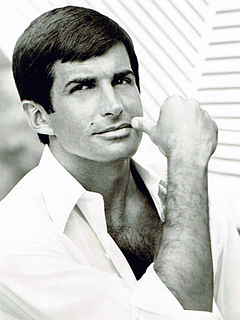A Quote by Elizabeth Debicki
Often, you're not quite sure what people have seen you in, but the script lands in your inbox. That was the case with 'The Night Manager.'
Related Quotes
At MGM there was a script cage in the basement where they’d show rushes. And I thought to myself, “How do I get into the script cage and find out what my future is?” I climbed into the script cage one night and spent the whole night in there. I saw the bowels of MGM. I saw the studio scripts that the producers had seen; the writers had just handed them in. And I started thinking this is a chance to pick my own roles.
With films, I just scribble a couple of notes for a scene. You don't have to do any writing at all, you just have your notes for the scene, which are written with the actors and the camera in mind. The actual script is a necessity for casting and budgeting, but the end product often doesn't bear much resemblance to the script--at least in my case.
"On Script" is one of my favorite songs I've ever written. I'd just been jamming on it one day, and again I was struggling with lyrics. I'm still figuring out what it's about. I've seen a couple of reviews that are like, "It's about the monotony of playing the same songs every night," because I say, "On script every night/Like a well-rehearsed stage show." It's not about that at all, but I find that funny, how people project what they think about me, or songwriters in general.
There are lots of people who believe there may be at least some genetic component to procrastination, and even if there isn't, it seems to be the case that procrastination habits are often set relatively early in life (that's certainly the case with me). But I also think that there's lots of evidence that external tools can help quite a bit in getting people to stop procrastinating.
Talk often, but never long; in that case, if you do not please, at least you are sure not to tire your hearers. Pay your own reckoning, but do not treat the whole company; this being one of the few cases in which people do not care to be treated, every one being fully convinced that he has wherewithal to pay.
The script is a starting point, not a fixed highway. I must look through the camera to see if what I've written on the page is right or not. In the script, you describe imagined scenes, but it's all suspended in mid-air. Often, an actor viewed against a wall or a landscape, or seen through a window, is much more eloquent than the lines you've given him. So then you take out the lines. This happens often to me and I end up saying what I want with a movement or a gesture.




































